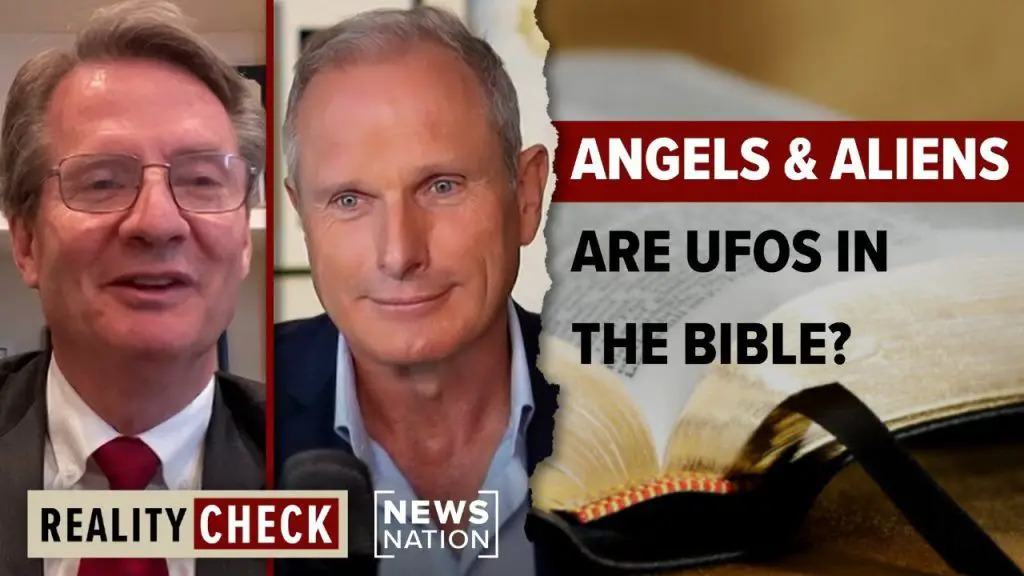
The intersection of religious belief and extraterrestrial life has long intrigued both theologians and enthusiasts of the unexplained. This curiosity often leads to the question: could the Bible contain references to what we now describe as UFOs or extraterrestrial beings? A recent discussion, featuring U.S. Congressman Tim Burchett and theologian Dr. Paul Thigpen, delved into this very topic, exploring the possibility that some biblical accounts could be interpreted as encounters with non-human intelligence, perhaps even extraterrestrial.
Biblical References to Anomalous Phenomena
Several passages in the Bible describe events that, to a modern reader, might seem reminiscent of UFO sightings. For example, the book of Ezekiel recounts a vision in which the prophet sees a “whirlwind coming out of the north, a great cloud with a raging fire engulfing itself” (Ezekiel 1:4). Within this cloud were creatures with an extraordinary appearance, leading some to speculate whether this could be an ancient description of a UFO encounter.
VIDEO: Rep. Burchett: Believing UFOs are in the Bible is not anti-Christian | Reality Check
Similarly, the account of Elijah being taken up into heaven in a “whirlwind” with “chariots of fire” (2 Kings 2:11) has also been cited as a possible reference to extraterrestrial technology. The imagery used in these passages—wheels within wheels, flying chariots, and bright lights—bears a striking resemblance to descriptions of unidentified flying objects in modern times.
Theological Interpretations
Congressman Burchett, a devout Christian, expressed that he has no difficulty reconciling his faith with the possibility of extraterrestrial life. He argues that the vastness of God’s creation could easily encompass other life forms beyond Earth, and that such beings might have been referenced in the Bible using the language and understanding of the time. For Burchett, the idea that Ezekiel’s vision could describe a UFO does not weaken his faith; rather, it broadens his perspective on the universe’s complexity.
Dr. Paul Thigpen, on the other hand, approaches the subject with caution. He acknowledges that the Bible does describe non-human intelligences, such as angels and demons, but he is hesitant to equate these beings with extraterrestrials as understood in contemporary UFO lore. Thigpen emphasizes that biblical references to angels and other supernatural entities should be interpreted within the context of their religious significance, not necessarily as evidence of alien encounters.
The Debate Over Angels and Aliens
The conversation between Burchett and Thigpen highlights a broader debate within both religious and UFO communities: are angels and other biblical beings simply manifestations of divine power, or could they be visitors from other worlds? The traditional Christian view holds that angels are purely spiritual beings created by God, distinct from any physical extraterrestrial life forms. These beings do not have bodies and do not exist within our space-time in the way that humans or hypothetical aliens might.
However, the overlap between descriptions of angels and modern UFO encounters has led some to speculate that biblical accounts could be ancient interpretations of alien visitations. This theory posits that the “angels” seen by biblical figures might have been beings from another planet, whose advanced technology and abilities were interpreted as divine or supernatural.
UFOs and the Vatican
The discussion also touched on the Catholic Church’s stance on extraterrestrial life. Historically, the Vatican has shown a keen interest in astronomy, and some Popes have even entertained the possibility of life beyond Earth. Pope John Paul II, when asked about aliens, responded that “they are God’s children too,” suggesting an openness to the idea that other intelligent beings could exist within God’s creation.
Additionally, there have been claims, such as those mentioned by David Grusch, a former U.S. intelligence officer, that the Vatican might have been involved in secret activities related to UFOs, including the transfer of alleged extraterrestrial technology during World War II. While these claims remain unproven, they add another layer of intrigue to the conversation about religion and extraterrestrial life.
Conclusion: A Broader Perspective on Faith and the Universe
The idea that the Bible might contain references to UFOs or extraterrestrials is a fascinating one that challenges traditional interpretations of religious texts. For some, like Congressman Burchett, this possibility enhances the awe of God’s creation, suggesting that humanity is not alone in the universe. For others, like Dr. Thigpen, it is important to maintain a distinction between spiritual beings as described in the Bible and the physical entities that might exist elsewhere in the cosmos.
Ultimately, the discussion about angels, aliens, and UFOs in the Bible invites believers and skeptics alike to explore the mysteries of faith and the universe with an open mind. Whether these biblical passages are read as metaphorical, spiritual, or literal accounts, they continue to inspire curiosity and wonder about our place in the vastness of creation.

Leave a Reply